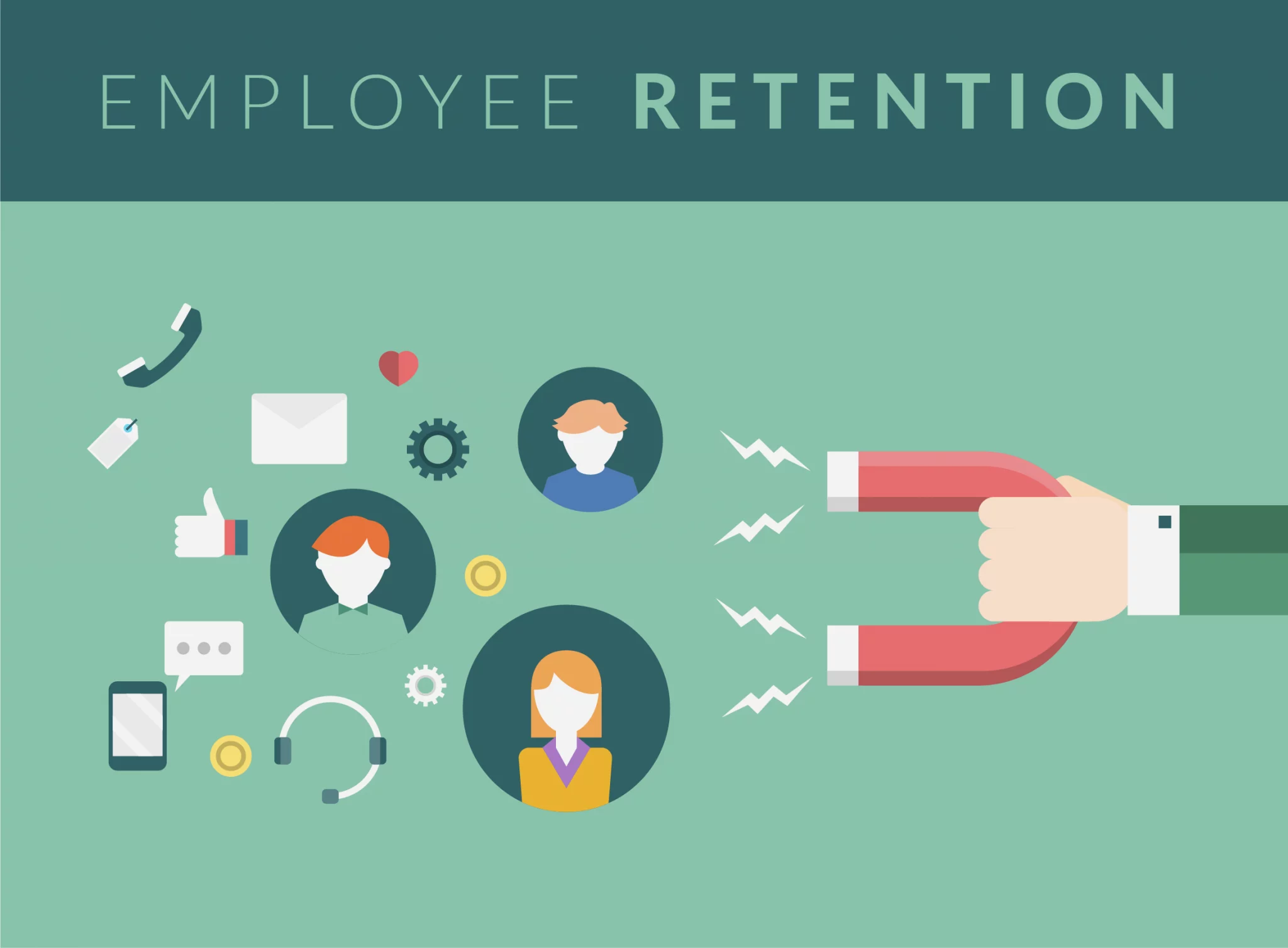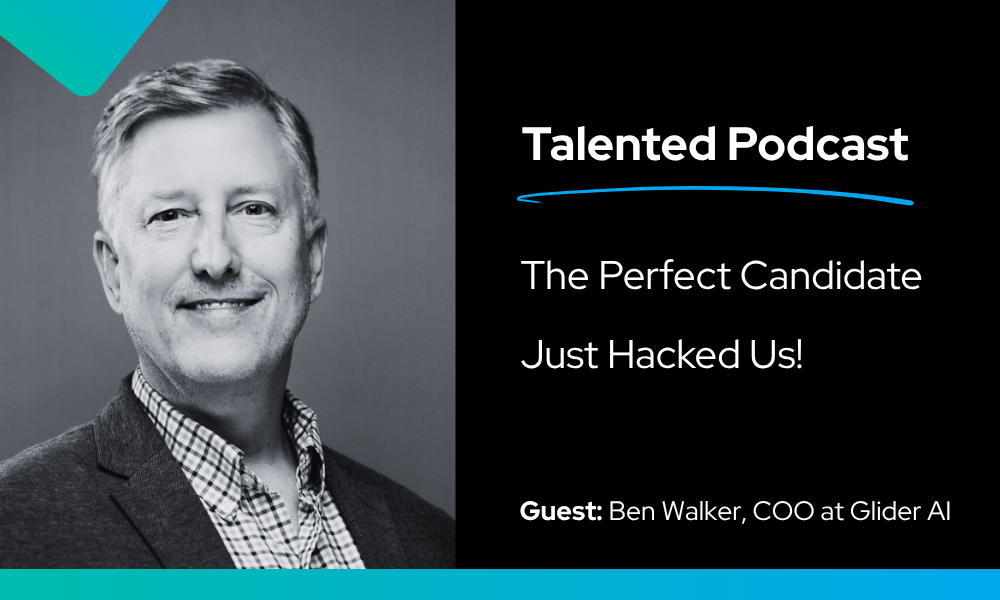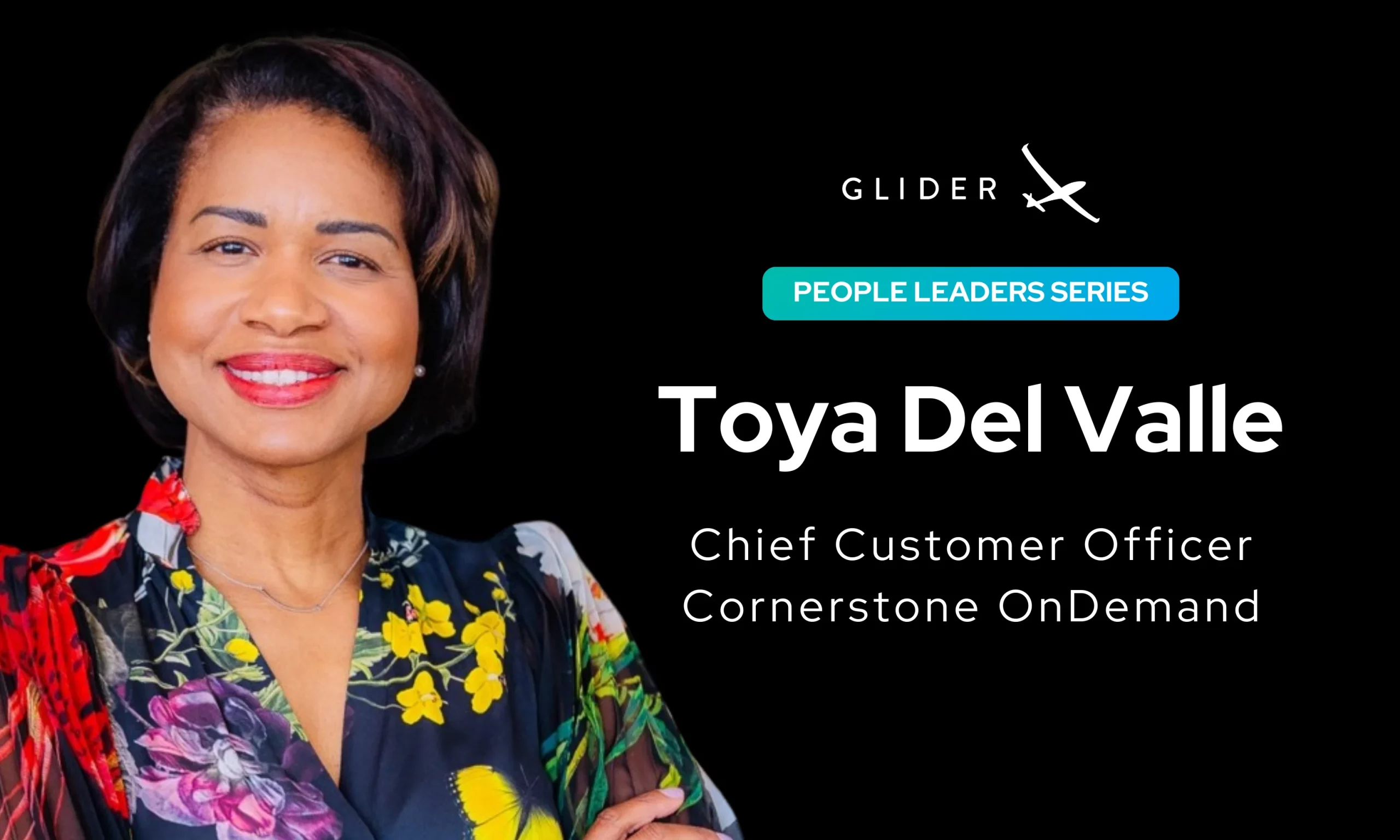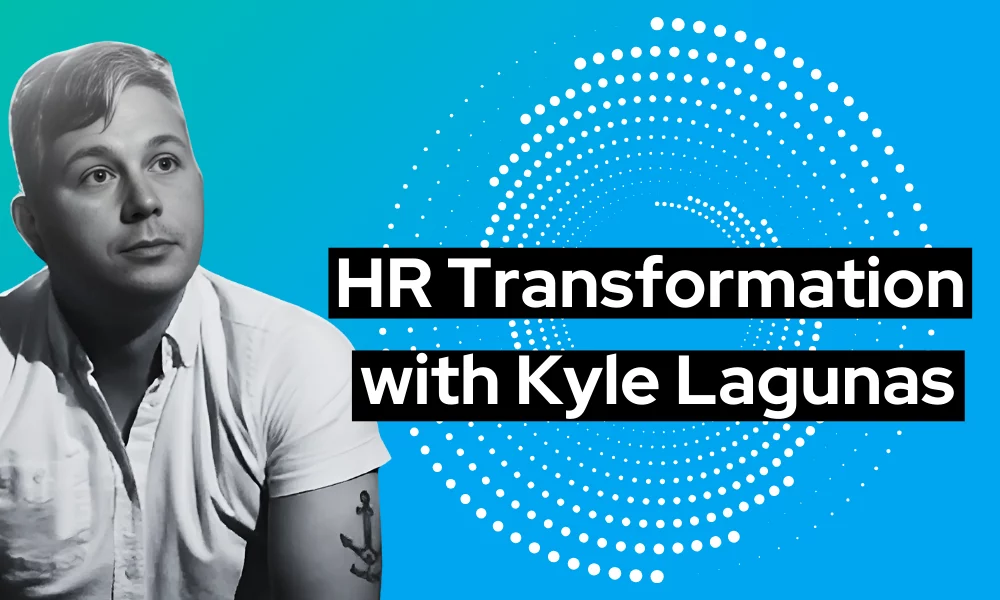
Make talent quality your leading analytic with skills-based hiring solution.

Employee retention is a top priority for companies looking to reduce turnover and cultivate talent whether in a candidate or employer-driven job market. AI has only increased the demand for new skills, creating a growing global skills gap, making an effective employee retention strategy more critical than ever. Organizations that fail to retain top talent face decreased productivity, loss of knowledge, and high recruiting expenses to fill open positions.
The workplace skill gap refers to the mismatch between employees’ skills versus those needed to thrive in their roles. A 2023 Wiley Report found that 69% of organizations are experiencing skill gaps in the workforce or expect gaps to develop within a few years. This data spotlights upskilling and reskilling existing talent as crucial retention strategies.
The widespread talent shortage shows no signs of slowing down, with an estimated 18-22% of job requisitions going unfilled, according to a recent labor market analysis. Exacerbating hiring challenges is the rapidly evolving landscape of technical competencies demanded by the industry.
Investing in talent mobility is one of the strategies to retain talent. It allows companies to fill skill gaps while empowering employees’ career growth and job satisfaction.
Upskilling involves teaching existing employees new competencies relevant to their current roles. Reskilling aims to provide employees with the new skills necessary to change roles or even careers within the company. A study found that 70% of employees would stay longer at companies that invest in their career development.
In fact, American employees who participate in upskilling programs get an 8.6% hike in their annual income (nearly US$8,000 on average) than those who do not. Moreover, 3 out of 5 workers find upskilling programs “extremely” important when deciding about their current jobs.
Upskilling opportunities now carry significant weight in attracting and retaining top talent, with over 3 in 4 employees gravitating toward companies prioritizing development.
Investing in skill certifications that benchmark competencies also builds employee confidence and expertise. Public cloud computing platform leader AWS offers over 15 role-based employee certification programs. Microsoft also boasts a wide array of technical certifications. Sponsoring such learning pathways helps employees gain credentials as they expand their capabilities. This leads to improved retention while addressing skill gaps with certified, qualified talent.
Traditional hiring focused on prior related experience. However, emphasizing potential through assessments of candidate soft skills, emotional intelligence, and cognitive abilities better ensures long-term retention.
Hiring teams are missing crucial windows to optimize candidate experience, with recent data finding only 17% of employers frequently assess engagement touchpoints through the recruitment journey. In fact, nearly half wait until the job offer is signed before evaluating the candidate’s experience, despite the risk of deteriorating talent brand perception. This oversight has pushed away over half of candidates in the past, as 58% admit to declining offers after negative interview interactions or application processes.
Additionally, close to 50% felt their time was not properly valued during the screening stages. Organizations aiming to attract skilled talent must prioritize consistent candidate experience measurement and real-time improvements at each hiring stage. Capturing feedback from sourcing to selection provides data to proactively nurture top prospects while avoiding easily preventable late-stage turnover.
Strategic mentorship and training programs enable employees to develop talents while building relationships and confidence. Cisco’s mentorship program saw a 95% program satisfaction rate among mentees. Providing defined career pathways with built-in training and mentors gives employees support systems and visibility into advancement opportunities.
Generalized employee training fails to provide the personalized development opportunities today’s workforce expects. Data shows employees are 24% more likely to stay 5+ years if they feel their skills are improving. Companies use assessments to recommend tailored learning paths based on an individual’s strengths, competency gaps, and interests. Providing personalized and targeted learning demonstrates an investment in each employee’s growth.
Beyond formal training programs, fostering a learning culture facilitates continuous skill-building while empowering employee autonomy. Tactics like encouraging document sharing on wikis, peer coaching, hosting lectures from visiting experts, and enabling employees to research innovations during work hours spark organic growth.
Continuous learning and career growth stand at the pinnacle of today’s employee expectations for a thriving workplace culture. Employees who believe their company cultivates a supportive environment for skill-building and progress are far more likely to be staunch advocates, according to a report.
Specifically, the data showed employees who view their organizational culture positively are 31% more likely to refer others to join the company and 25% more apt to describe themselves as happy and engaged at work. With recruitment and retention inexorably interlinked, the takeaway is clear – modern professionals see opportunities to actively develop new capabilities on the job as the top workforce culture differentiator.
Flexibility ranked among the top five non-monetary job motivators in a 2021 survey. Remote work and flexible hours provide work-life balance while expanding access to diverse talent pools less bound by geography.
A recent Mental Health America survey conducted in partnership with FlexJobs spotlighted that employees lacking access to remote or hybrid arrangements are almost twice as likely to report poor or very poor mental well-being. The findings also showed that those enabled to work flexibly were 45% more likely to rate their work-life balance as excellent/very good.
Additionally, flexible work correlated to having stronger emotional support systems in place on the job, with 54% of these employees affirming they have the backing they need – a nearly 20% increase over those without flexibility.
Consistent performance feedback provides transparency around expectations while capturing actionable input to improve employee experience. Annual or bi-annual reviews fail to support real-time development. Monthly or quarterly touchpoints on accomplishments, challenges, and goals better empower growth through actionable conversations.
Strategies only provide ROI if their effectiveness is monitored over time. Companies should track key metrics like voluntary turnover rate against targets and past trends. Conducting custom eNPS surveys can indicate changing sentiment. Analyzing internal promotion rates and program-specific completion and attrition data gives tangible insights into the impact of development initiatives on retention. Establishing clear success metrics for each retention program allows data-backed decisions on strategy optimization.
In an era where top talent chooses employers aligned to their long-term growth, effective retention comes down to empowering skills development and demonstrating loyalty to staff. Companies that invest in upskilling, reskilling, mentorship, tailored learning, and flexible work arrangements enjoy reduced turnover costs alongside highly motivated and future-ready teams. Retaining top performers over time provides an invaluable competitive edge. Prioritizing these employee retention best practices allows organizations to plan skill supply chains strategically while benefiting from many years of ROI from their greatest asset – exceptional people.
Organizations can utilize cohort-based training during slower seasons, incentivize self-paced digital learning, and leverage leaders as part-time trainers. Cross-training also builds skills fluidity across teams for greater agility in shifting priorities.
Consistent feedback empowers people’s development through clear expectations and support for overcoming challenges. This facilitates higher job satisfaction and greater intent to stay long-term. Targeted feedback also enables businesses to continuously optimize programs to meet evolving employee needs.
The 3 R’s include respect, recognition, and rewards. Employees want to feel respected for the value they bring and recognized for achievements through monetary and non-monetary rewards. Fulfilling these needs cultivates engagement and loyalty.
Data shows skill growth opportunities strongly influence employee retention and talent attraction. Promoting learning internally makes staff feel invested and meets the desire to continuously develop new capabilities. This culture also ensures organizations can fill emerging skill gaps by building talent from within.

“The Perfect Candidate Just Hacked Us”: Inside the Global Playbook of Hiring Fraud That 100% test score might be your biggest red flag. Enterprise breaches don’t always start with phishing emails; sometimes, they start with a fake job interview. In this episode of Talented, Joseph Cole sits down with COO Ben Walker to unpack one […]

Can HR Stop Playing Buzzword Bingo with Skills and AI? If you’re an HR or TA practitioner or work in HR Tech in any capacity, AI and Skills-Based Hiring is what everyone is talking about. The problem? All the talk is diluting the importance of two very interrelated topics. Glider AI sponsored the Transformation Realness […]

Q&A with HR/TA Analyst Kyle Lagunas The traditional playbook that was HR is being rewritten. AI is reshaping work, skills-based strategies are transforming hiring, and HR teams are under pressure to deliver more with less. HR isn’t just about managing people anymore—it’s about engineering the future of work. In this Q&A session, Kyle Lagunas and Joseph […]